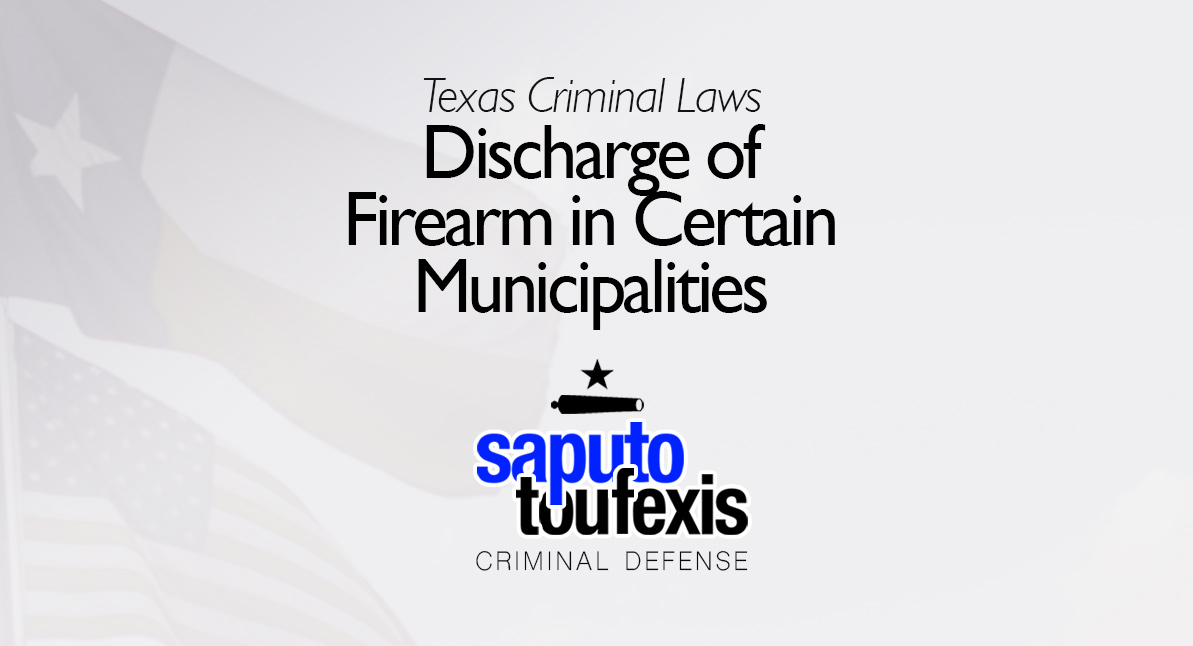The Texas Discharge of Firearm in Certain Municipalities law gives police the right to arrest you if they believe you recklessly discharged a firearm in a municipality with a population of 100,000 people or more.
FAQs about the
Discharge of Firearm law in Texas
- What is the current Texas law about Discharge of Firearm in Certain Municipalities?
- How can I be charged with a Discharge of Firearm offense in Texas?
- What is the statute of limitation for Discharge of Firearm in Texas?
- What is the penalty for a Texas Discharge of Firearm offense?
- Can you get probation for Discharge of Firearm in Texas?
- What level of crime is Discharge of Firearm in Texas?
The Discharge of Firearm law acts as a statewide prohibition against shooting a gun in populated areas. The law does require the discharge of the weapon to be “reckless,” but the law does not provide a specific definition or examples of recklessness in this context.
Have you been charged with Discharge of Firearm in Certain Municipalities? Contact us today to discuss legal representation.
or Text or Call (888) 239-9305
The Texas legislature codified this criminal offense in Texas Penal Code Section 42.12. The legislature did not update this statute in 2023. In fact, this law has not been amended since 1995.
The Penal Code classifies the Texas Discharge of Firearm law under Title 9 “Offenses Against Public Order and Decency,” Chapter 42 “Disorderly Conduct and Related Offenses.” Learn more about the Texas offense of Discharge of Firearm in Certain Municipalities below.
What is the current Texas law about Discharge of Firearm in Certain Municipalities?
Texas law currently defines the offense of Discharge of Firearm in Certain Municipalities in Penal Code Section §42.12 as follows:[1]
(a) A person commits an offense if the person recklessly discharges a firearm inside the corporate limits of a municipality having a population of 100,000 or more.
The legislature has not modified this law since 1995.
How can I be charged with a Discharge of Firearm offense in Texas?
You can be charged with Discharge of Firearm in Certain Municipalities in Texas if the state’s attorneys believe that each of the elements of 42.12(a) as described in the section above have been met.
Because the Discharge of Firearm law is classified as a Class A misdemeanor, state prosecutors can bring these charges in county courts instead. However, the statute specifically allows municipalities to create and enforce their own laws prohibiting the discharge of firearms.
What is the statute of limitation for Discharge of Firearm in Texas?
As a misdemeanor, Discharge of Firearm charges have a two-year limitations period.[2]
What is the penalty for a Texas Discharge of Firearm offense?
A conviction for Discharge of Firearm in Certain Municipalities in Texas is punished as a Class A misdemeanor,[3] with a maximum possible fine under Texas state law of up to $4,000 and jail time of up to one year. Learn about the differences between grades of felonies and misdemeanors here
Can you get probation for Discharge of Firearm in Texas?
The Texas Code of Criminal Procedure allows both judges and juries to grant probation for Discharge of Firearm, and judges are also allowed to accept deferred adjudication plea deals.[4]
Note, however, that judges may not grant community supervision after a conviction if (1) the defendant used or exhibited a deadly weapon during the commission of the felony or immediate flight thereafter and (2) the defendant used or exhibited the deadly weapon himself or was a party to the offense and knew that a deadly weapon would be used or exhibited.[5]
What level of crime is Discharge of Firearm in Texas?
The Texas Penal Code currently classifies the Discharge of Firearm offense as a Class A misdemeanor.
Learn more about the penalty range for this offense in the section above.
Legal References:
^1. Texas Penal Code §42.12. This law is current as of 2024.^2. See Code of Criminal Procedure 12.02(a)^3. Texas Penal Code §42.12(b)^4. See Chapter 42, Texas Code of Criminal Procedure, Art. 42A.054, Art. 42A.056, Art. 42A.102^5. Art. 42A.054(b), Texas Code of Criminal Procedure










